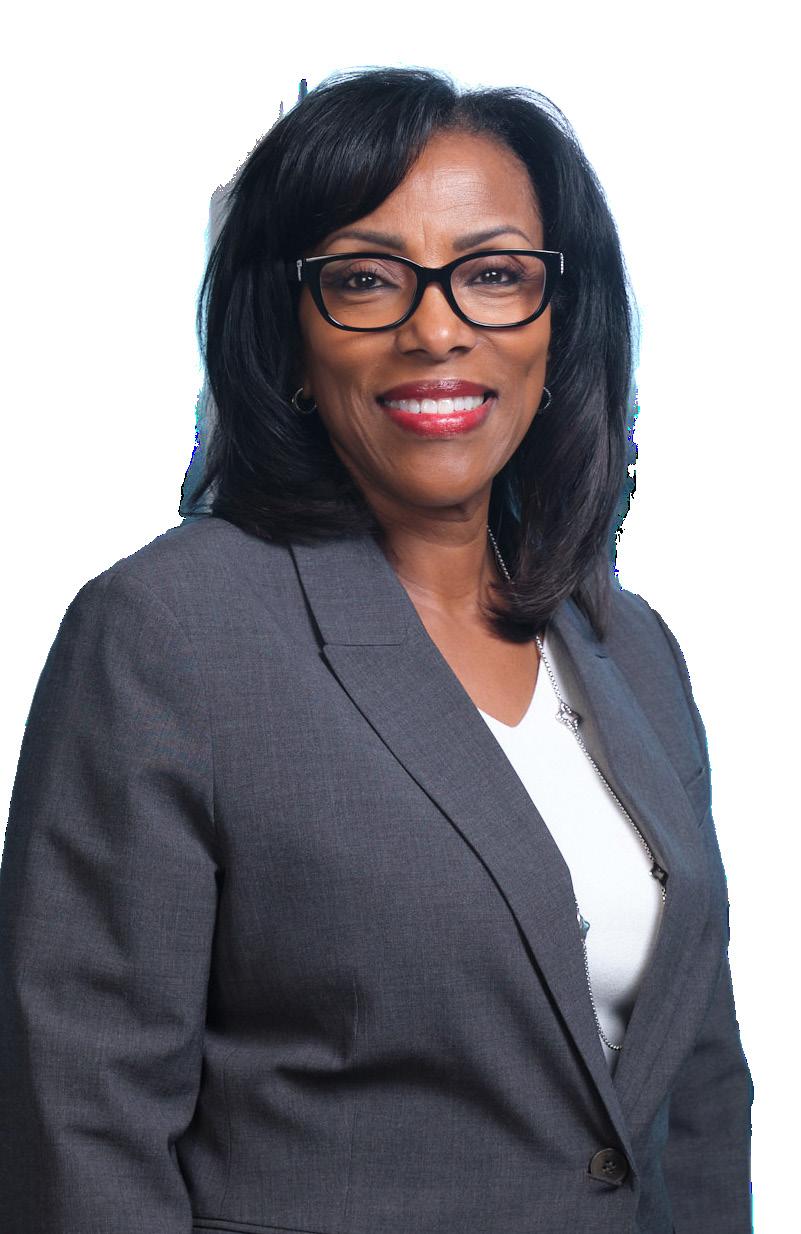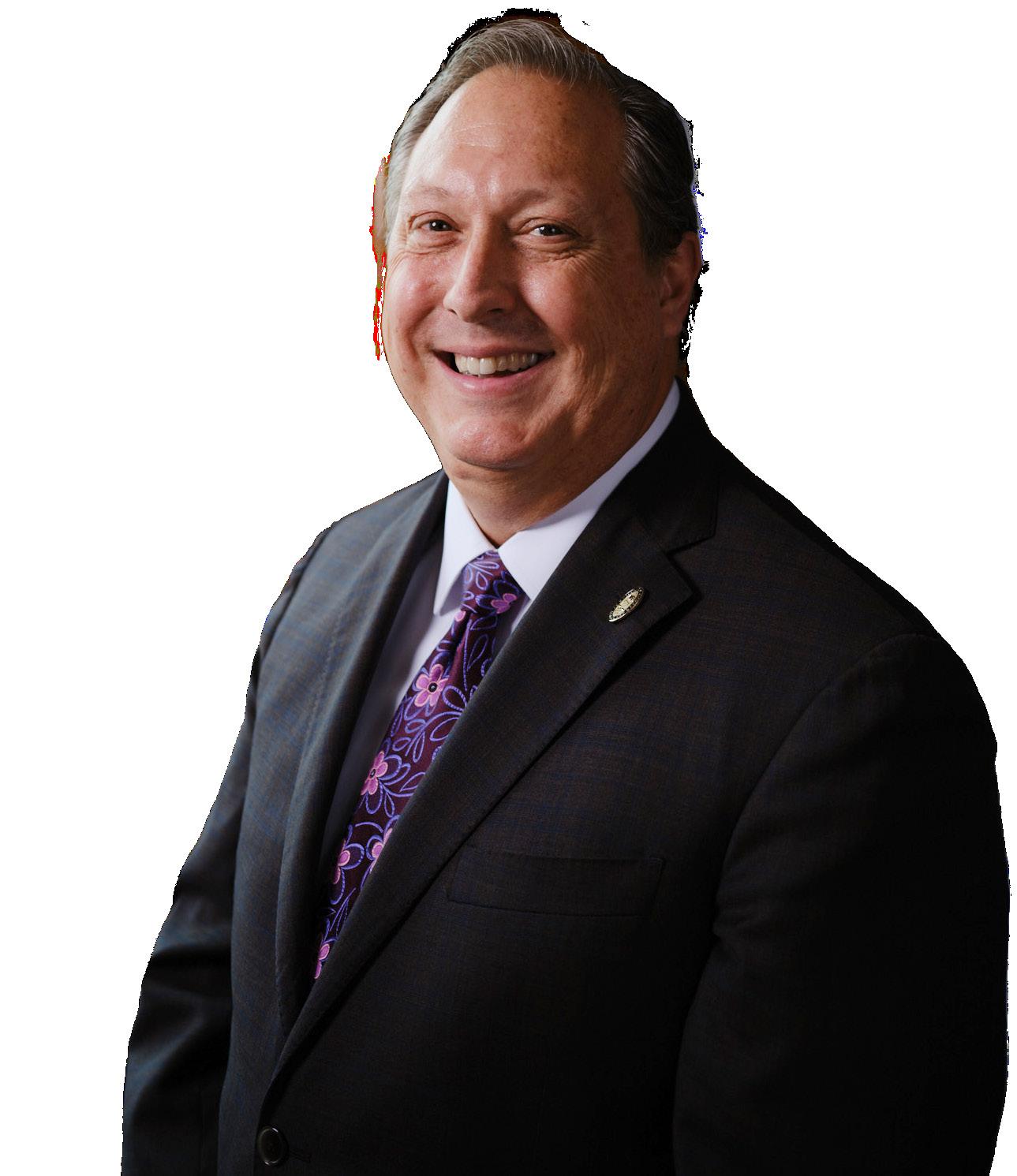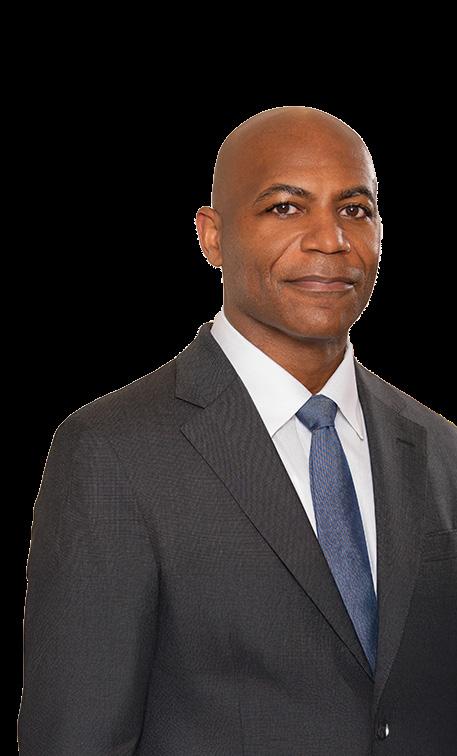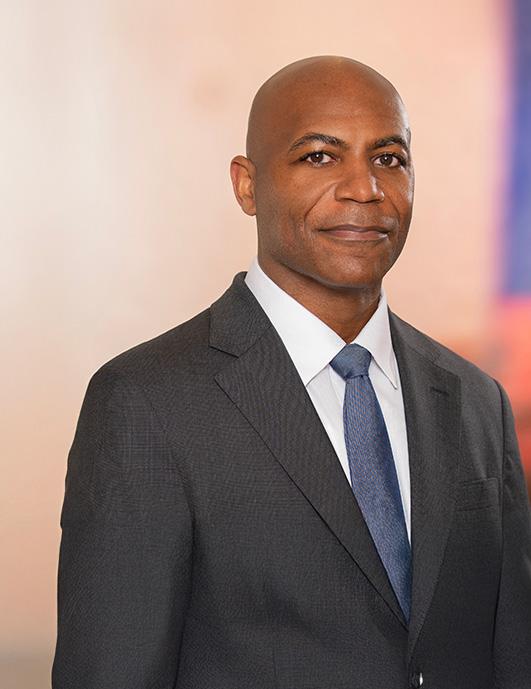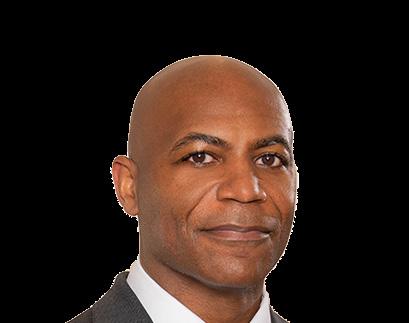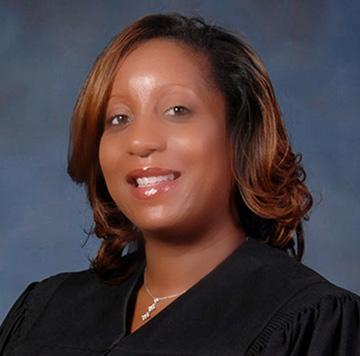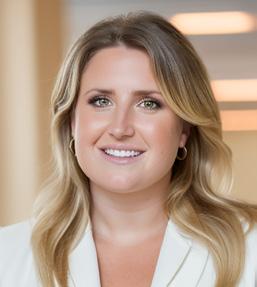A Conversation with Former U.S. Attorney Erek L. Barron
BY HON. LISA A. HALL JOHNSON
I recently had the opportunity to meet with Erek L. Barron, Former United States Attorney for the District of Maryland. Mr. Barron agreed to meet with me, and we were joined by my two law clerks, Jace Peterkin and Michael Peoples, for an in depth conversation about the legal profession. I thought it to be a particularly profound opportunity to talk about transitions, as Mr. Barron was transitioning into a new professional chapter, and Jace and Michael are just beginning their professional legal journey. What occurred was a master class in grace, perseverance, hard work, and vision. My first task was to get on his calendar and get him to agree to do an interview – with me. I’m privileged to have known Mr. Barron since we were young prosecutors. I tried one of my first jury trials with him, I worked on one of his early campaigns (before I was elevated to the Bench), we have engaged in service to the various Bar Associations together, we are friends, and we share many mutual friends. Thus, after he erupted in laughter when I asked if I could interview him for the Maryland State Bar Association, I convinced him to agree. If you know Mr. Barron, you know that there is a certain food item that, if offered, you are guaranteed a meeting. Once we confirmed that, we were booked for a lovely conversation. We started by focusing on Mr. Barron’s early life and career.
EARLY LIFE AND CAREER
Would you be willing to share a bit about your personal background and how it shaped your professional success? I was raised by a very hardworking mother whose singular focus was my education. For a very brief period as a child, through no fault of our own, we experienced homelessness. My mother worked three jobs to get us out of that situation. Through lived experience, I learned the value of hard work, consideration, and education.
What has been the role of family on your professional success?
It is important that family be a part of everything that I do—family is the inspiration and support for all that I do.
During your career, were there instances where race, gender, or socioeconomic status helped you? Were there instances where either presented a challenge?
These are ever-present challenges in a complex world. I try to be aware of when we may be the beneficiaries of status and to help others along the way that may not be so lucky. When it has presented a challenge, I try to use it as motivation to be better.
When you were in law school, or even early in your practice, did you envision your career path leading you to become United States Attorney for the District of Maryland?
I did not see it coming. My primary aim has been to be the best attorney that I can be.
What is the best advice you received early in your career? What was the worst?
I think the best advice has been to do the best, passionate job I can and, by doing so, the right doors will open at the right time. This is really just a condensed version of MLK’s “blueprint for life,” which he told to a group of middle schoolers in the 1960s but which I still periodically listen to—it is a great fundamental constitution for a well-lived life.
I think the worst advice has been something along the lines of wait-your-turn. If I did that, I’d still be waiting.
You have been consistently active in bar associations, particularly the Maryland State Bar Associate and you are a past president of the J. Franklyn Bourne Bar
Association. In what ways have bar associations contributed to your success and your development?
The Bar has been a great way to enhance my professional network while giving back to the community.
You have had a wide array of professional experiences, including criminal prosecution at the state level in two offices, you worked on the Hill, you served as a State Delegate, and you worked in private practice. First, have I left anything out? Next, how did those experiences inform your service as the US Attorney for the District of Maryland? I didn’t realize it while on the journey, but these experiences set the stage for collaborative leadership and an excellent understanding of how the local, state, and federal criminal justice systems can work (but often don’t work) together to make communities safer while also reducing unnecessary costs.
Setting the stage for his professional success was an essential part of this dialogue. To understand Erek, you must understand his journey and what he has overcome to achieve his success. But you must also understand how he prioritizes service, mentorship, and relationships. It is also evident that the challenges don’t end at achievement, and in his case challenges marked his path. Service, relationships, and challenges are all evident in his time as the United States Attorney.
SERVICE AS THE UNITED STATES ATTORNEY FOR MARYLAND
Tell us about the path to becoming a US Attorney? What was the most surprising aspect of the journey? What was the most fulfilling? You outlined the path in the previous question. This is not the traditional path and I represented a number of firsts, which is
Paraphrasing a quote from one well-known law firm: exceptional professionals aren’t cut from a single or predictable cloth. Dare to be different, but still excellent at your craft.
quite surprising. For example: I was the first member of the Criminal Justice Act penal to be United States Attorney; I was the first former local prosecutor to be United States Attorney; I was only the second former state legislator to be United States Attorney; and I was the first Black United States Attorney. Paraphrasing a quote from one well-known law firm: exceptional professionals aren’t cut from a single or predictable cloth. Dare to be different, but still excellent at your craft.
During your time as United States Attorney for the District of Maryland, what would you consider the most challenging aspect of the work? What was the most rewarding?
The most challenging aspect of the work is getting different people and organizations with different backgrounds, cultures, goals to work together towards the same mission. As hard as that can be, it is most rewarding to see it all come together, especially in public service where you may literally be saving lives.
Did those challenges shape your perspective on public service? If so, how? These challenges have only strengthened my perspective on the importance of public service.
What would you consider your greatest accomplishments as United States Attorney?
I think the greatest accomplishment was being a part of the greatest reduction in violent crime the State and Baltimore City have ever seen.
If you were still in the role, what would be on your list of things to accomplish? I would have enjoyed being a continuing part of the personal and professional development of the more recent hires, but they will all be just fine.
Speaking of those hired during your tenure, how have you worked to create opportunities or mentorship for younger attorneys within the legal profession,
and more specifically, within the US Attorney's office?
Yes, the office has great informal and formal mentors and a great mentorship program.
You’ve often talked about how impactful mentorship has been on your career. Was that part of the motivation to create these opportunities for others? There’s nothing like having a guide who has been there before you. There’s been times when I’ve had it and times where I didn’t.
With respect to the political current climate, and the abundance of federal layoffs, what advice would you offer to candidates, specifically young attorneys, who are seeking careers in federal public service?
Find opportunities, wherever they may be, to hone your craft and you will make it to where you’re supposed to be.
What are your thoughts regarding the difficulties and challenges that the federal courts are facing?
The federal courts face many challenges, including diminished respect for—and understanding of — the role of the judicial system, increased caseloads and case complexity, and increased threats to the safety of courthouse personnel. The courts need more jurists, more resources, better security, and a better cheerleading team. In addition to showing greater professionalism, lawyers need to do a better job of standing up for the rule of law and supporting the bench. Ours is a noble profession, in support of justice and service to others, not money or power.
Mr. Barron’s comments supporting the bench were specifically appreciated as he is aware of the challenges that I face as a jurist. I also wanted Jace and Michael to really understand from Mr. Barron’s perspective how to navigate these challenging times as they embark on the next phase of their professional journey. Thus, we had a robust discussion regarding professional transitions. When we met with Mr. Barron, he had not announced what
his next move would be. I believe that this provided a safe space for these young lawyers to inquire about how to make a move and determine where or how to land. Thus, we talked a bit about the next chapter. We also talked about balance, what success means, and how to find fulfillment.
NEXT CHAPTER
Throughout your life, you have consistently set both goals and expectations, which have been met with excellence. I also know you to be an incredibly humble person. How do you measure success?
I feel successful when I know that I did my part—when I’ve played smart and left it all on the field.
There are many lawyers that are exploring new career options, either voluntarily or involuntarily. What advice do you have for anyone who finds themselves at a professional crossroads?
Take a step back and focus on what is important and fulfilling to you, not to everyone else, and the answer is there.
My experience with you is that you are a consistent and loyal friend. How have friendships, and professional relationships, impacted you over the years? There’s nothing like having people around you that have known you at various stages of your personal and professional life. They keep you grounded and accountable and love you for who you are inside.
You are an avid reader. What are you reading right now and why?
I have been reading fiction by authors S.A. Cosby (All The Sinners Bleed) and Walter Mosely (Charcoal Joe, Black Betty, Trouble is What I D0, etc.) and an autobiography, In The Catbird Seat, by William Marbury and One Man’s Freedom by Edward Bennett Williams. I read Cosby and Mosley because their gritty, hardnosed detectives and fixers are a fun reminder of the work that we do as lawyers. I’m reading Marbury and Williams because they take me back to some of the roots of the profession.
What’s next for you?
I am looking forward to private practice and helping clients solve challenging problems. At the same time, I hope to find opportunities to remain active in public service. I think I’m at my best when serving others and that’s what I’ll continue to do. I want to practice at the highest level possible while also serving the public interest.
Is there anything that I haven’t touched on that you want to communicate to those reading this piece?
With all these questions, I think you get it!
Our conversation with Mr. Barron was delightful, and I believe Jace and Michael learned from the unique perspective that was shared with them. We talked for some time, and as a follow-up I asked my law clerks what they took away from the
experience. They shared that they were most inspired by the encouragement to fully commit to their work because, as Mr. Barron reminded them, true success comes from consistency and dedication over time. Further Mr. Barron drew a parallel between a lawyer practicing law and an artisan developing their craft. He spoke about the importance of building a strong foundation, using each experience as a building block, and continuously refining your skills. Mr. Barron talked to them about valuing their professional relationships by highlighting the importance of fostering strong relationships with their colleagues that are rooted in collaboration, mutual support, and a willingness to lean on others when needed as essential parts of a thriving career. They learned to be open to new opportunities. Mr. Barron encouraged them to remain open and prepared for unexpected paths
because sometimes the best opportunities come from places you didn’t anticipate. He also encouraged them to take seriously the responsibility to pave the way for others to walk through the doors that were opened for you, and he emphasized that the Bar is an excellent resource to them.
Honorable Lisa Hall Johnson currently serves as the District Administrative Judge for the District Court of Maryland, District 5, Prince George's County, a position she has held since January 6, 2017. Prior to this, she was an Associate Judge in the same court from July 22, 2013, also serving as the Domestic Violence Coordinating Judge.
• Works exclusively with lawyers professional liability insurance
• Defense Program offering a policy with preferred pricing and enhanced coverage for defense firms
• ADR Policy for professionals exclusively engaged in mediation, arbitration, or related ADR services
• Judicial Disciplinary Insurance Policy for state judges
• First Dollar Defense - a loss only deductible can produce a substantial savings for firms facing nuisance type claims
• Returned over $83 million in dividends to policyholders since 1988
The
